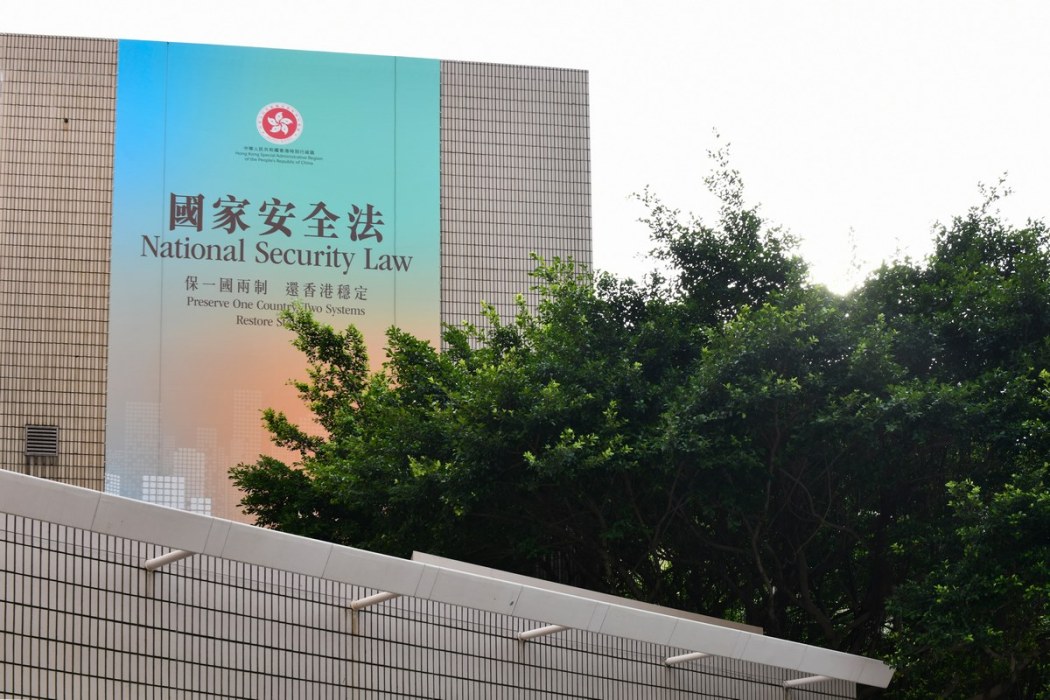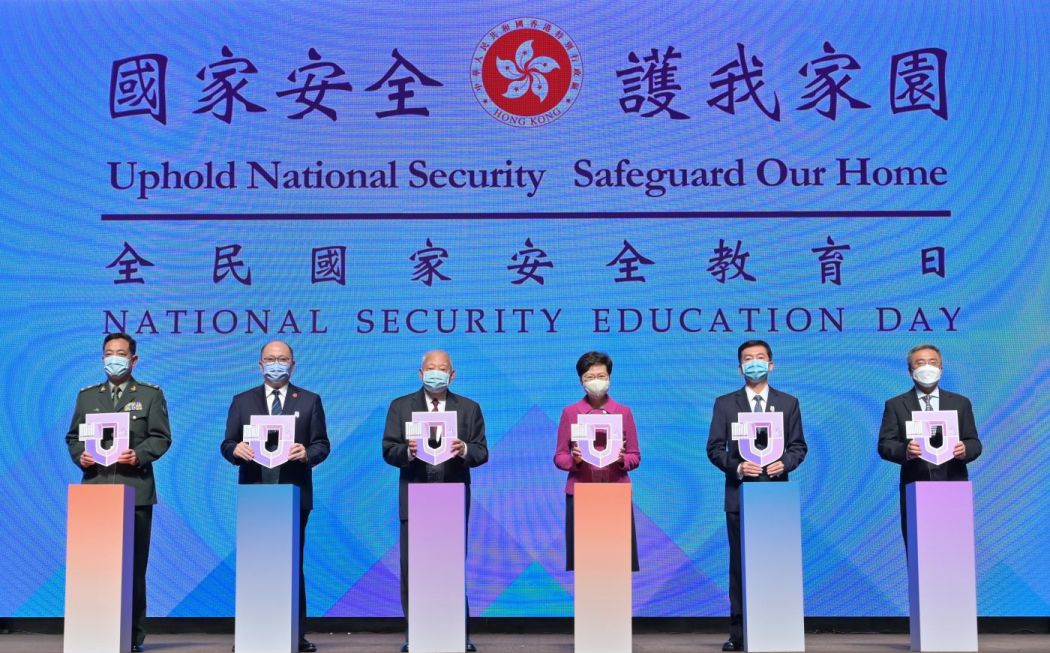The Hong Kong government has rebuked a half-yearly report by the UK foreign ministry which criticised the Beijing-imposed national security law as being used to “stifle political opposition” in the city.
In a report published on Thursday documenting major events in Hong Kong between July and December last year, British foreign secretary Dominic Raab said the period was defined by a pattern of Beijing’s behaviour “intended to crush dissent” in the semi-autonomous region.

The enactment and enforcement of the sweeping security legislation was used to “drastically curtail free speech and legitimate political debate,” Raab wrote, adding that the law imposed on June 30 last year had “negative effect” on press freedom.
“The law is being used to stifle political opposition, as we saw in the arrests of 55 pro-democracy politicians and activists for their alleged roles in the Legislative Council primaries,” Raab wrote.
Among the 55 arrested, 47 were officially charged with “conspiracy to commit subversion” in late February. So far, only 11 of them are on bail pending trial. In response to the prosecution of the democrats, the foreign minister said: “Confidence in the rule of law will be undermined if there are further politicised prosecution decisions.”


Raab said the UK has “stood up” for Hongkongers by offering a new immigration route for British Nationals (Overseas) passport holders and their dependents, as well as indefinitely suspending its extradition treaty with Hong Kong and slapping an arms embargo on the city.
‘Smearing… inaccurate’
Authorities in Hong Kong responded after midnight on Friday, rejecting Raab’s remarks as “inaccurate.” A government spokesperson said “any objective person” would see that the security law restored stability in the city, and Hongkongers could continue to enjoy basic rights and freedoms in accordance with the law.
“The comments in the report smearing [the] Hong Kong national security law could not be further from the truth, and are clearly adopting double standards,” a statement read.


The 35-page report also criticised Beijing’s “unilateral” decision to revamp the electoral system in Hong Kong. Raab said the overhaul – passed by an overwhelming majority in the local legislature last month – signified a “reversal” of China’s promise to Hong Kong of gradually moving towards a system of universal suffrage.
The Hong Kong government refuted the “misleading” remarks and said the electoral changes were “timely and necessary” to prevent “anti-China forces” from “creating chaos” in the legislature: “No country or government could turn a blind eye to such dangers.”
British judges
The UK foreign minister raised concerns over “increasing pressure” on the city’s independent judiciary, citing criticism and attacks on judges by both the pro-Beijing and pro-democracy supporters.
The report also mentioned the future of UK judges serving as non-permanent judges on the Court of Final Appeal, after the head of the UK Supreme Court said last July that a continuation of their service would depend on whether this was still compatible with judicial independence and the rule of law.


Members of the British parliament on Wednesday called for the country’s top court to stop sending judges to its former colony. During a parliamentary debate on the human rights situation in Hong Kong, Iain Duncan Smith of the Conservative Party questioned why UK judges were still earning a living in the city, saying they should not tolerate what he described as a brutal regime.
“I do think now the Bar Council here should speak to those who are earning a living in Hong Kong and say it’s time to draw stumps and come home,” he said.
Thursday’s report said that it is up to the judges to decide whether they will continue serving in Hong Kong: “The UK Supreme Court continues to assess the situation in Hong Kong, in discussion with the UK Government.”
Support HKFP | Policies & Ethics | Error/typo? | Contact Us | Newsletter | Transparency & Annual Report | Apps
Help safeguard press freedom & keep HKFP free for all readers by supporting our team

























